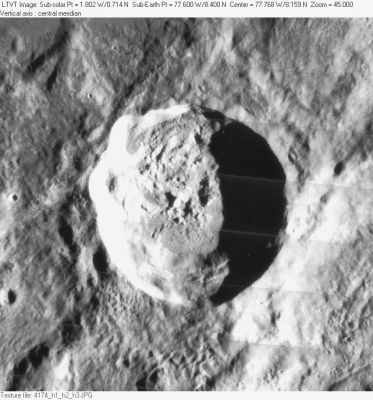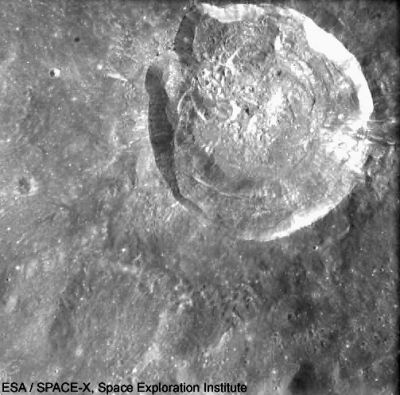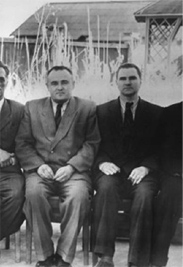Glushko
Contents
[hide]Glushko
(current IAU name; former IAU name: Olbers A)
|
Lat: 8.4°N, Long: 77.6°W, Diam: 43 km, Depth: 3.6 km approx., Rükl: 28, Copernican |


Left: LO-IV-174
Right: SMART-1 Although not evident in these close-up images, when seen from overhead in a wider view at high sun, Glushko is the center of a brilliant ray system.
Images
LPOD Photo Gallery Lunar Orbiter Images
- Zond 7 (Glushko and environs, evening light).
- View of rays**
Maps
(LAC zone 55B4) USGS Digital Atlas PDF
IAU page
Description
Description: Wikipedia
Additional Information
- Possible oblique impact – downrange SE or NW, dark collar (impact melt like Tycho) most evident to NNE, width 0.7 crater diameter. [Kirata et al LPSC 30: 1350]
- Exterior impact melt deposits most extensive to NNW, max of ~30 km beyond rim. Most extensive ejecta, rays and secondary craters to the NE, with max wall slumping on NNW side of crater, and topographically lowest rim crest to NNW (Hawke and Head, 1977).
- TSI = 35, CPI = 25, FI = 20; MI =80 Smith and Sanchez, 1973
- Depth: 3.6 km (calculated) from shadows in LO Frame 4174 H2 using LTVT) - JohnMoore2
- Glushko's high-albedo ejectablanket is the brightest spot on the very old waning crescent moon (something for pre-sunrise observers!). This bright ejectablanket (a little bit northward from the moon's equator) looks as if it is the sun's reflected image on a shiny "watery" globe.- DannyCaes Sep 11, 2015 (observed during the pre-sunrise morning of september the 11th, 2015, from 51 degrees North) (plans to observe the even older moon's ultra-thin crescent on the morning of september the 12th were cancelled because of clouded sky...).
Nomenclature
- Named for Valentin Petrovich Glushko (September 2, 1908 - January 10, 1989), a Soviet engineer of Ukrainian descent, and one of the three principal Soviet "Chief Designers" (along with Vladimir Chelomei and Sergey Korolev) of spacecraft and rockets during the Soviet/American Space Race. The Chief Council of Designers was an informal body of six members (originally composed of: Viktor Kuznetsov, Vladimir Barmin, Valentin Glushko, Sergei Korolev, Nikolai Pilyugin, Mikhail Ryazanskii, and Aleksei Bogomolov) set up by Korolev in 1947 to coordinate efforts made between top engineers, the defense industry, and military leaders involved with design of the first Soviet ballistic missiles (and Space Program aka Luna, Spudnik...etc.,). Image below shows Glushko (on right, with Korolev sitting next to him).- JohnMoore2

Credit: NASA (Chief Designers 1959). - The name Olbers A was part of the original IAU nomenclature of 1935. This replacement name for a formerly lettered crater was announced in 1993 (IAU Transactions XXIIA).
LPOD Articles
S-Banding along the western limb
Bibliography
SMART-1 Views Glushko Crater on the Moon